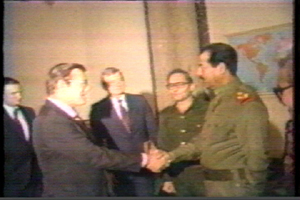"Shell Chief fears oil shortage in seven years"
World demand for oil and gas will outstrip supply within seven years, according to Royal Dutch Shell.
The oil multinational is predicting that conventional supplies will not keep pace with soaring population growth and the rapid pace of economic development.
Jeroen van der Veer, Shell’s chief executive, said in an e-mail to the company’s staff this week that output of conventional oil and gas was close to peaking. He wrote: “Shell estimates that after 2015 supplies of easy-to-access oil and gas will no longer keep up with demand.......”
"Using more energy inevitably means emitting more CO2 at a time when climate change has become a critical global issue," he wrote.
IEA Urges OPEC to Pump More; Says Stockpiles `Tight' - 2 to 7 years
Bloomberg, Jan 25th 2008
Oil stockpiles are still ``very tight,'' IEA Executive Director Nobuo Tanaka said in an interview today in Davos, Switzerland, where he is attending the World Economic Forum..... A lack of investment could spur an oil supply crunch by ``2010, 2012, some time like that,'' Tanaka said. In its annual World Energy Outlook report in November, the IEA said a supply crunch in the period to 2015 cannot be ruled out.
Euractiv, 18 Jan 2008
Energy Commissioner Andris Piebalgs has drawn attention to the 'overlooked' issue of dwindling oil reserves coupled with rapidly growing and unprecedented global demand.
Speaking to the Swiss Energy Congress on 14 January, Piebalgs warned that global energy demand is expected to more than double by 2030, and questioned whether the provision of oil can "keep up" with demand in this period.
With the Commission set to release on 23 January a series of proposals designed to help the EU realise its commitment of reducing CO2 emissions by 20% by 2020, Piebalgs argued that while tackling climate change is crucial, policymakers should not lose sight of the issue of security of fossil fuel supply.
The combined challenge of climate change and supply security leads to the conclusion that the EU cannot "hang on" to its "old, fossil energy system', he said.Piebalgs referred to varying predictions about when the oil production peak will be reached, with some experts saying it will be in 20 years and others arguing that the world is already at peak production.
Highlighting the potential gravity of the problem, Piebalgs noted that the oil crisis of the 1970s presented a discrepancy between oil supply and demand of only 5%, but that in a post-peak oil scenario, the gap between supply capacity and demand could widen by 4% annually, leading to a 20% gap within five years.
International Energy Agency - 7 years
IEA exec says oil supply crunch looms (Business Week, Tue 11 Dec)
A prominent energy economist warned Tuesday that global oil markets are at risk of being under-supplied as national oil companies gain greater control of the world's petroleum supplies. Some 37.5 million barrels a day of additional oil-production capacity is needed by 2015, but only 25 million barrels a day are planned, International Energy Agency Chief Economist Fatih Birol said.
Oil Depletion Analysis Centre
Already here - Energy Watch Group
The Guardian, Monday October 22 2007
· Output peaked in 2006 and will fall by several % a year
· Decline in gas, coal and uranium also predicted
The German-based Energy Watch Group will release its study in London today saying that global oil production peaked in 2006 - much earlier than most experts had expected. The report, which predicts that production will now fall by several percent a year, comes after oil prices set new records almost every day last week, on Friday hitting more than $90 (£44) a barrel.
The Independent, Monday, 17 September 2007
Former Shell chairman says that diminishing resources could push price of crude to $150 a barrel
Lord Oxburgh, the former chairman of Shell, has issued a stark warning that the price of oil could hit $150 per barrel, with oil production peaking within the next 20 years.
He accused the industry of having its head "in the sand" about the depletion of supplies, and warned: "We may be sleepwalking into a problem which is actually going to be very serious and it may be too late to do anything about it by the time we are fully aware."
The International Energy Agency has forecast what it calls an oil "supply crunch" by 2012, a prediction that Lord Oxburgh said could possibly come to pass."Transport Infrastructure will suffer"
Lord Oxburgh, Interview with David Strahan, September 16th, 2007"It’s worth pointing out the world is never actually going to run out of oil, what it’s going to do is run out of cheap, accessible oil. And fundamentally our world transport infrastructure which is based on the internal combustion engine, and which needs a high energy-density liquid fuel, that is really what is going to suffer." Lord Oxburgh, Interview with David Strahan, September 16th, 2007
Easy and/or Cheap Oil.
Peaking of World Oil Production:
Recent Forecasts Robert L. Hirsch, SAIC (February 2007) US Dept of Energy
David O’Reilly,
Chairman, Chevron
“The time when we could
count on cheap oil... is
clearly ending.”
CERA Energy
Conference. February
2005.
Samuel Bodman, U.S.
Secretary of Energy
“The era of cheap and
abundant petroleum may
now be over.”
Christian Science Monitor.
July 8, 2006
Jeroen van der Veer,
Shell Chief Executive.
“Peak oil does exist for
easytodrill
oil…”
Cummins, C., Williams, M.
Shell's Chief Pursues
Simple Goals. WALL
STREET JOURNAL.
January 17, 2006.
Alpha Oumar Konare,
African Union
Commission Chair.
"The era of cheap oil is
over."
Era of cheap oil is over.
Reuters. 02/04/2006
Viktor Khristenko,
Russian Energy
Minister
“... the era of cheap
hydrocarbons is over".
Hope, C. RUSSIA: 'ERA
OF CHEAP FUEL IS
OVER'. The Telegraph.
06/06/2006.
Guy Caruso,
Administrator.
U.S.EIA
“The era of low cost oil is
probably over.”
Holmes, J. Four Corners
Broadband Edition.
Australian Television
Program. 10 July 2006.
